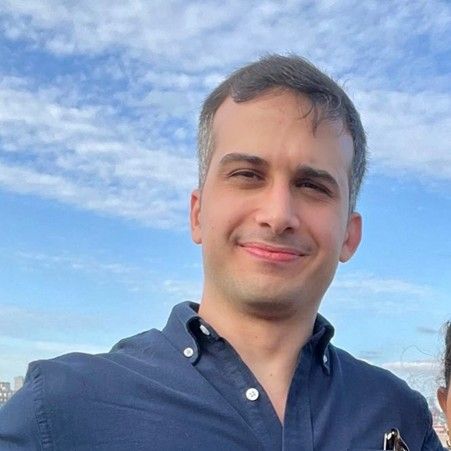The use of technology to mobilize Russians to vote—a system tied to the relative material well-being of the electorate, its high dependence on the state, and a far-reaching system of digital control—is breaking down.
Andrey Pertsev
{
"authors": [
"Oren Samet-Marram",
"Nathan J. Brown"
],
"type": "legacyinthemedia",
"centerAffiliationAll": "dc",
"centers": [
"Carnegie Endowment for International Peace",
"Malcolm H. Kerr Carnegie Middle East Center"
],
"collections": [],
"englishNewsletterAll": "menaTransitions",
"nonEnglishNewsletterAll": "",
"primaryCenter": "Carnegie Endowment for International Peace",
"programAffiliation": "MEP",
"programs": [
"Middle East"
],
"projects": [],
"regions": [
"North Africa",
"Egypt"
],
"topics": [
"Political Reform",
"Democracy"
]
}
Source: Getty
If Sisi manages to rebuild the Egyptian state, its citizens will be coping with—and debating—his project for many years to come.
Source: Washington Post
Former Gen. Abdel Fattah al-Sisi prepares to assume Egypt’s presidency already having appeared to his fellow citizens in a number of historical guises. A year ago, he posed as the reincarnation of Muhammad Naguib, the general who led his fellow officers to overthrow the Egyptian monarchy in 1952 but then urged them to return to the barracks and restore democracy. For his enthusiastic followers, Sisi has since morphed into Gamal Abdel Nasser, the colonel who shoved Naguib aside, built an ambitious socialist system and thumbed his nose at the superpowers. For his critics, he is about to recreate Hosni Mubarak’s presidency – cumbersome, authoritarian and directionless. Based on his behavior and his public statements, however, Sisi seems to be channeling a different sort of authoritarian leader – one exemplified by António de Oliveira Salazar, the political economy professor who came to rule Portugal for nearly four decades beginning in the early 1930s. The only question is whether Sisi can last as long.
Salazar and several of his contemporaries, including Brazil’s Getúlio Vargas, Austria’s Engelbert Dollfuss and Greece’s Ioannis Metaxas, are little remembered outside their home countries, but they constitute a distinct breed of dictator who was surprisingly common in the years leading up to World War II. At a time when fascism, Nazism and Stalinism were working to remold their societies – and in certain cases the entire world – this group of dictators, which also included the more familiar iteration of Spain’s Francisco Franco, pursued a less transformative path.
Indeed, one of the main reasons that political scientists speak of “authoritarianism” today is because a group of scholars – led by the late Juan Linz – noticed that leaders like Salazar were often lumped together with their more notorious counterparts. As opposed to totalitarian systems and their thundering leaders, however, authoritarian regimes tended to show some very different characteristics.
First, they were anti-ideological – a characteristic that was sometimes hard to maintain in the overheated 1930s. Such leaders often grounded themselves in conservative Catholic social and political thought, borrowed loosely from ideas about corporatism and the organic nature of society (in which all elements are supposed to contribute to the whole), and distrusted partisanship, liberalism and class conflict. But there were no canonical texts, pompous platforms or bombastic worldviews. As nationalistic as they were, they tended to shy away from elaborate racial theories. Salazar, for instance, publicly criticized all forms of communism and fascism, which, he argued, went against the natural moral order. Dollfuss and Vargas, too, eschewed explicit ideologies in favor of more generic nationalism or half-hearted populist appeals. Even Metaxas, who sought to model his “Third Hellenic Republic” after fascist regimes in Italy and Germany, failed to articulate a clear ideological project. Having been guided by attitudes more than ideology, it is easy to understand why so many of these leaders have been forgotten since their ideas, such as they were, left little legacy.
Anyone listening to Sisi’s public statements cannot fail to be similarly struck by the unsystematic nature of his ideology. Yes, there is a stress on duty, hard work and the national interest. But if there is a Sisi-ism, it remains a closely guarded secret.
Second, as opposed to their more famous totalitarian cousins, these authoritarian rulers did not rely on political mobilization. While some leaders, like Salazar and Franco, distrusted mass politics and actively promoted public apathy, others, like Dollfuss and Metaxas, tried and failed to accumulate a mass following. Others, including Vargas, approached political mobilization cautiously. Despite some populist tendencies, including a healthy dose of regime propaganda, Vargas never formed a political party or mass movement and even went so far as to ban all organized political activity in Brazil in 1937.
These leaders were also distrustful of parliamentary democracy because of its partisanship and competitiveness. This attitude was often driven by the perceived failures of raucous democratic politics that preceded the authoritarian takeovers. In most cases, however, the new regimes responded not by swallowing up political life in their own organizations, but instead by tamping down on politics altogether. Sometimes they tolerated the form of parliamentary democracy, maintaining a veneer of republicanism that bolstered their legitimacy at home and abroad. Other times they swept it away, stressing the importance of unity and order. But in either case, power was located in the dreary upper reaches of the bureaucracy (sometimes joined by the security apparatus) rather than in any political party.
Sisi’s Egypt appears to be one in which real political parties are ignored or suppressed. Anemic ones will amble along without much influence, and parliament will likely be badly divided and dominated by independents. Like Vargas, Sisi – while maintaining misgivings about mass politics – has sought to derive legitimacy from a popular mandate, with vague references to the “will of the people.” The scrambling to produce a respectable turnout in the presidential election, however, indicates that Sisi’s trajectory might end up closer to that of Dollfuss or Metaxas, whose attempts to form mass movements never really caught on within their passive, divided societies, already weary of politics.
Third, the regimes tended to be respectful of existing institutions, especially those rooted in national virtues, tradition or history. Abhorring class conflict, the dictators were comfortable with prevailing hierarchies. They did not battle religious institutions as their totalitarian counterparts did. Instead, they worked with them. The constitution that Salazar promulgated in 1933 explicitly rooted state sovereignty in Christian ethics, and Dollfuss’s Austrian constitution included a special place for the Catholic Church. Franco also embraced the Catholic Church as a unique and inalienable part of Spanish identity, carving out special privileges and exempting it from certain forms of state repression. Regimes also aligned themselves with other traditional institutions in their societies, including social and economic elites and military establishments, often seeking to manage, rather than tightly control, their activity. They talked of family, duty, army and country in ways that sounded more deeply conservative than ambitious and aggrandizing.
Likewise, Sisi appears to take charge of an Egyptian state that has pulled leading institutions (army, religious apparatus and so on) together. While he may direct national policy in a broad sense, he seems to lack the tools or the interest to build a system in which all of these bodies answer directly and constantly to him.
Finally, these regimes tended to be tame internationally. Some tilted toward the Axis in World War II, but most stayed neutral, and some that survived, like those in Spain and Portugal, joined NATO. Leaders like Franco and Dollfuss emphasized state sovereignty and the strength of a unique, non-exportable national character. Their iron fist was strictly for domestic consumption, and though they were highly nationalistic, their ambitions stopped at the border. Salazar’s Portugal did hold on to its African colonies – a cruel vanity that may have hastened the regime’s end after the dictator’s death.
Here, the cautious nature of Sisi’s political actions and pronouncements is especially marked. Not only has he aligned his country (for a hefty reward) with Saudi Arabia and the United Arab Emirates, but he has also spoken respectfully of Egypt’s relationship with the United States (to no obvious domestic benefit – almost everybody else in Egypt has adopted a hysterical tone about the United States). Sisi seems quite comfortable with the conservative tone Egyptian foreign policy has maintained since the era of former president Anwar Sadat even while he allows his followers to stoke memories of a more assertive Egypt.
What did such regimes have to show for themselves? They were generally repressive, relying on suppression of opposition, close policing of expression, and abusive and intrusive secret police forces. But they were rarely involved in the more horrific mass crimes of Adolf Hitler’s Germany, Joseph Stalin’s Soviet Union and Mao Zedong’s China. Over the long term, the victims of these regimes were often entire societies. Anyone who visits a post-authoritarian society hears the same phrases over and over again: “Now, we can breathe;” “It’s like waking up;” “We felt cut off from the world.” Those who stayed out of prison felt the environment to be stultifying more than cruel. Salazar called his regime the “Estado Novo” (New State), but for many Portuguese by the 1970s, it had become velho (old) instead.
It was Salazar’s record of economic success that initially solidified his image as a capable technocrat and strong leader. It is not yet clear if Sisi’s economic stewardship will win him similar accolades, or if he has the political skills to make his regime stick. Some would-be Salazars did not die peacefully in their sleep (Dollfuss, for instance, was assassinated within two years of assuming dictatorial control of Austria). Nor is it clear that Egyptians, who have recently discovered their political voices, are ready to shut up and get back to work. Indeed, the temporary success of many authoritarian regimes in the interwar years was based on public frustration with democratic politics transforming into apathy rather than mobilized anger.
The effort to build a Salazar-type regime may or may not succeed, but it will certainly leave a mark. In 2007, nearly four decades after his death and over three decades after they had overthrown his system, the Portuguese people voted Salazar the greatest Portuguese person who had ever lived. There may be no Salazarism and no Sisi-sm, but if Sisi manages to rebuild the Egyptian state, its citizens will be coping with – and debating – his project for many years to come.
Oren Samet-Marram is a junior fellow at the Carnegie Endowment for International Peace.
This article was originally published on the Washington Post.
Oren Samet-Marram
Former Junior Fellow, Democracy and Middle East Programs

Nonresident Senior Fellow, Middle East Program
Nathan J. Brown, a professor of political science and international affairs at George Washington University, is a distinguished scholar and author of nine books on Arab politics and governance, as well as editor of five books.
Carnegie does not take institutional positions on public policy issues; the views represented herein are those of the author(s) and do not necessarily reflect the views of Carnegie, its staff, or its trustees.
The use of technology to mobilize Russians to vote—a system tied to the relative material well-being of the electorate, its high dependence on the state, and a far-reaching system of digital control—is breaking down.

Andrey Pertsev
New data from the 2026 Indian American Attitudes Survey show that Democratic support has not fully rebounded from 2020.


Sumitra Badrinathan, Devesh Kapur, Andy Robaina, …
For climate-focused civil society in countries like Morocco, Algeria, and Tunisia to be most effective, organizations should work together to develop networks that extend their reach beyond their local area and connect across borders to share best practices and amplify each other’s work.

Sarah Yerkes
The recent African Cup of Nations tournament in Morocco touched on issues that largely transcended the sport.


Issam Kayssi, Yasmine Zarhloule
As Moscow looks for opportunities to build inroads on the continent, governments in West and Southern Africa are identifying new ways to promote their goals—and facing new risks.



Nate Reynolds, ed., Frances Z. Brown, ed., Frederic Wehrey, ed., …